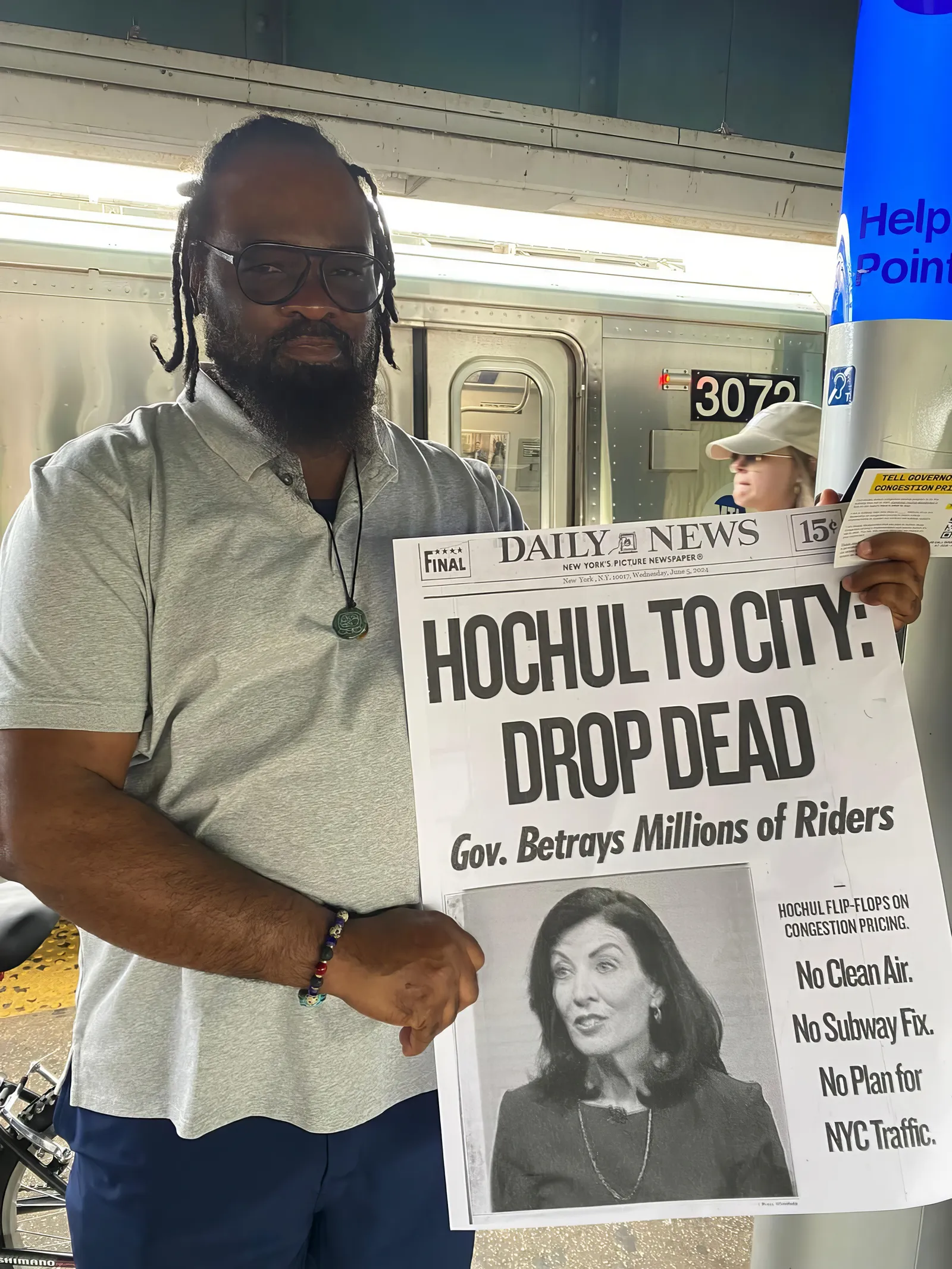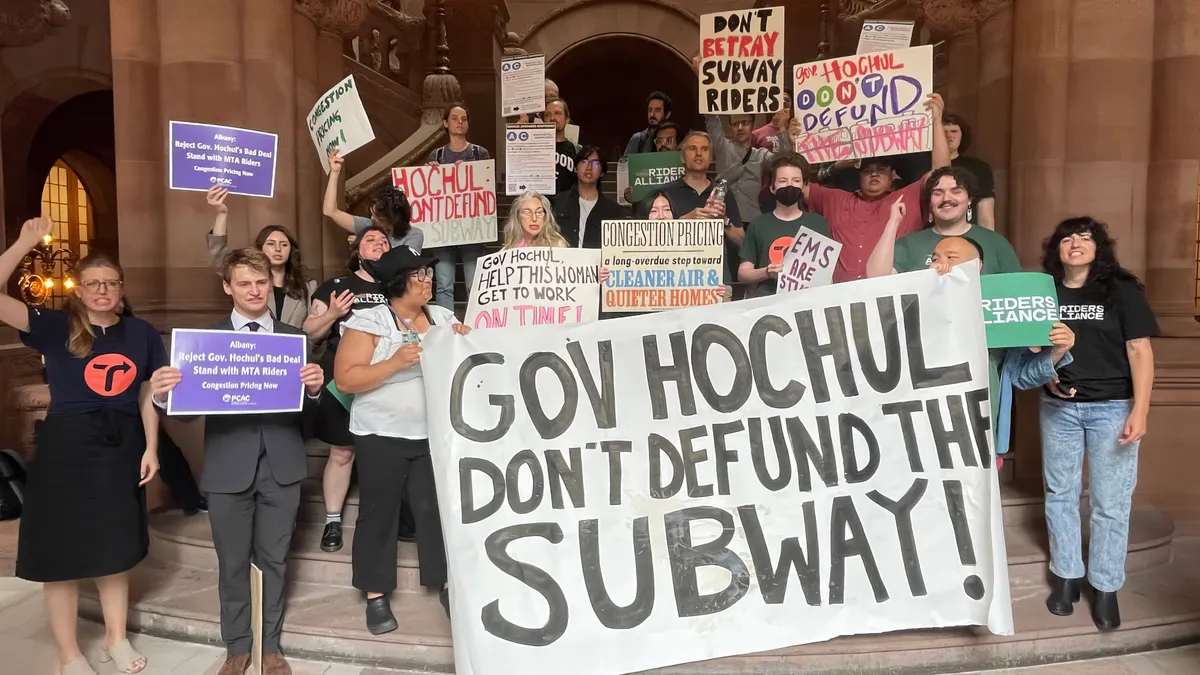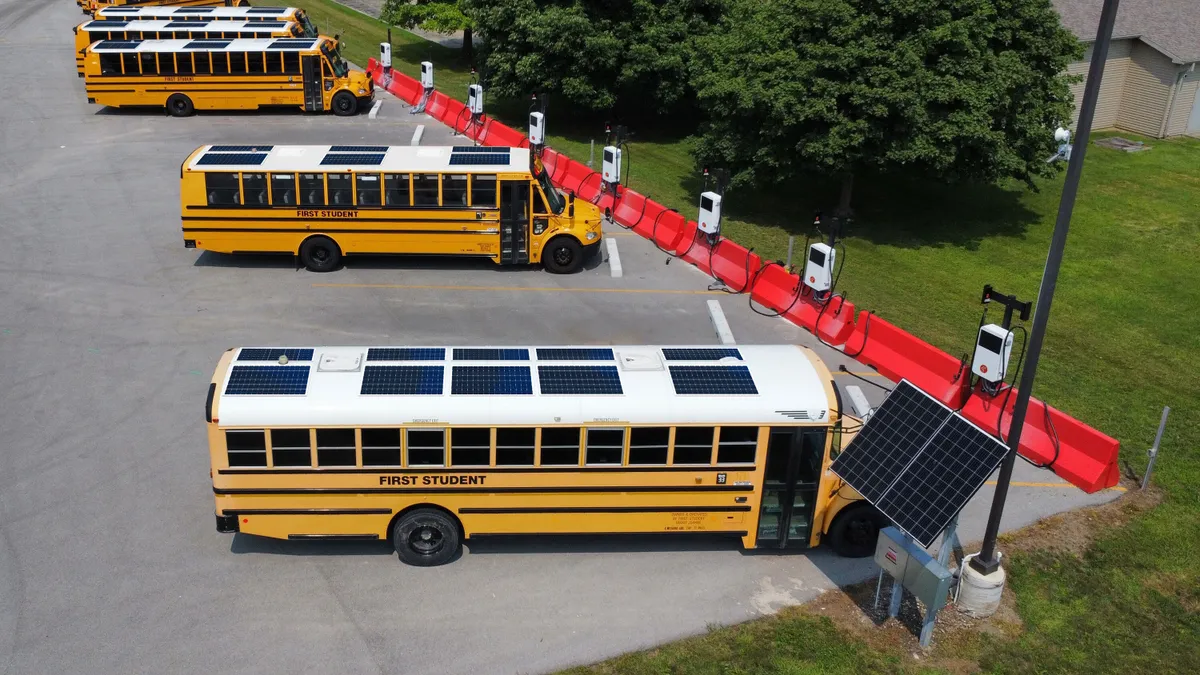Shockwaves from New York Gov. Kathy Hochul’s about-face on the state’s congestion pricing plan for Manhattan are still reverberating throughout the region.
On June 5, Hochul ordered an indefinite pause to the tolling plan, which was scheduled to take effect June 30. The program would have charged drivers using an E-ZPass tag entering Manhattan at or below 60th Street a fee of $15 on weekdays, with higher rates for certain trucks and non-exempt buses, and lower rates at night. Passengers in ride-hail vehicles and taxis would be charged far lower rates.
Revenues from the fees of about $1 billion a year would be leveraged through bonds to provide $15 billion toward the New York Metropolitan Transportation Authority’s capital investments.
But there has been significant opposition to what would have been the nation’s first congestion pricing plan. It faced lawsuits from New Jersey and civil rights organizations, along with labor organizations, some small business owners and residents of the Lower East Side in Manhattan.
A Siena Research Institute poll, released April 22, found that 63% of registered New York state voters opposed the congestion pricing plan. The governor’s favorability rating in the poll dipped to 40%. She had been a proponent of the tolling plan all along, touting it as recently as May 20 at the Global Economic Summit in Ireland. But the upcoming federal election came into play.
In the 2020 midterm election, Democrats lost four seats in the U.S. House of Representatives and are looking to regain those districts. According to Politico, Rep. Hakeem Jeffries, D-N.Y., the House Minority Leader, supported Hochul’s move to halt the congestion pricing plan. New York City Mayor Eric Adams said yesterday that “We need to support the governor,” Spectrum News NY1 reported.
“It's very politically driven,” said Eric Goldwyn, program director at the Marron Institute of Urban Management at New York University and a professor of transportation and land use.

Hochul’s action outraged proponents of the congestion pricing plan. “The governor's decision to defund public transit means New Yorkers stand to lose new, reliable subway signals, accessible train stations, faster buses and cleaner air,” said Danny Pearlstein, policy and communications director for Riders Alliance, a transit advocacy organization, in a June 11 email statement.
“After years of meticulous study and thorough planning, it is poor process to unilaterally undo this work with no public consultation and while the region’s transit system grapples with a financial crisis years in the making,” said National Association of City Transportation Officials Chair Janette Sadik-Khan and Executive Director Ryan Russo in a joint email statement.
“NACTO urges State lawmakers and the MTA Board — which is required to act independently and make decisions purely based on their fiduciary responsibility to the MTA — to ensure that congestion pricing is implemented as planned.”
The Board is scheduled to meet June 26, when it must decide whether to officially halt the program. Pausing congestion pricing will require additional approvals, such as from the commissioner of the New York State Department of Transportation, Goldwyn said.
“The MTA cannot award contracts that do not have a committed, identified funding source,” said MTA CFO Kevin Willens and General Counsel Paige Graves in a joint statement, “Until there is a commitment for funding the balance of the 2020-2024 Capital Program, the MTA will need to reorganize the Program to prioritize the most basic and urgent needs.”
Willens and Graves also note that “New York State law places an obligation on MTA to implement a congestion pricing program.” That’s why Hochul ordered an indefinite pause instead of killing the program outright, Goldwyn explained, and why Hochul’s decision may spark lawsuits in the opinion of Michael Gerrard, a Columbia Law School professor and environmental attorney. Gerard told Courthouse News Service that the MTA board has a “fiduciary responsibility” to the transit agency and is being asked to “forego a massive revenue stream.”
The MTA’s 20-year needs assessment includes a comprehensive, 134-page document that calls for purchasing over 3,900 new subway cars, replacing 9,000 buses, making 95% of subway stations accessible by 2055 and investing in passenger stations, rail yards, signal systems and other infrastructure. MTA Chair and CEO Janno Lieber told CBS News New York, “We’re going to fight like hell to make sure we don’t have to reduce service.”
Hochul suggested replacing the projected revenue from congestion pricing with a payroll tax on New York businesses, but the state legislature ended its 2024 session last week without taking any action on this issue. “If you're going to sort of pull the plug on a billion or a billion and a half a year in revenue, you’ve got to come up with a substitute before you pull the plug,” Goldwyn said.




















